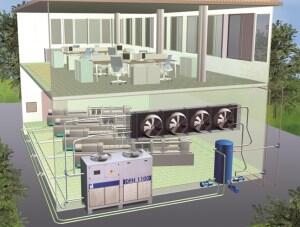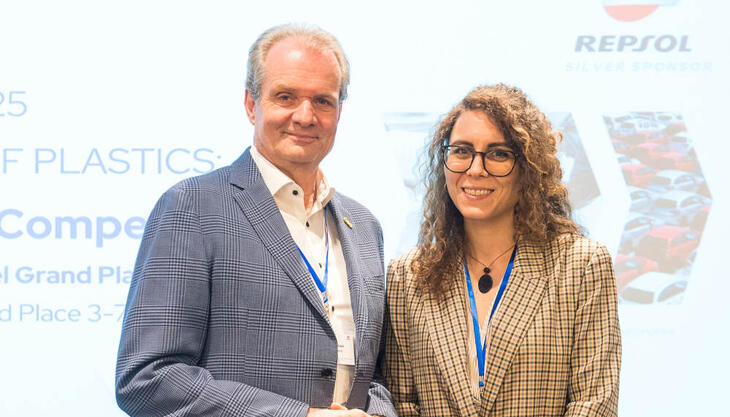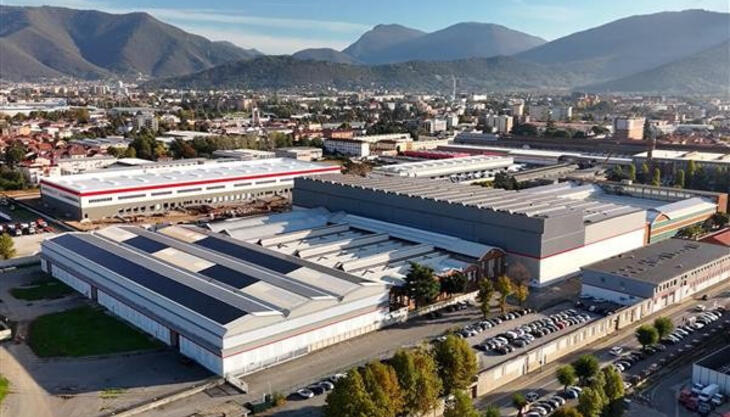Ecological rhymes with economical

Ecoenergy is the solution offered by Dega (attending K 2013 in hall 10, booth H01) for the economical and ecological cooling - by means of closed-loop heat exchangers - of the oil used in injection moulding machines, as well as in all processing machines equipped with cooling systems to keep cooling water temperature at 3°C above the ambient temperature without the help of external adiabatic or high-pressure systems. In winter this system can cool down the mould circuit too, thanks to the double circuit supplied as standard equipment which relies on the same fans as the oil circuit. All this results in sizeable energy savings, since the same equipment enables both the oil and the mould circuits to be cooled, as well as in less space requirement, because the two circuits are overlapped.
If the production department or the offices in a factory are equipped with a floor-heating installation, by connecting a recirculation pump to the insulated tank supplied as a standard, it is possible to use this system as a source for heating water up to 26°C and - instead of conveying it to the outside to cool it down by means of fans - exploit it for heating the offices at 22°C, with clear economic benefits. In those areas where the outside temperature in summer can exceed 35°C for long periods, the heat exchangers can be equipped with water-cooled cellulose panels ensuring that the water circulating inside the plant never exceeds 24°C.
The link between the Ecoenergy heat exchangers and the mould temperature control is represented by the Dega mini-chillers, which condense the water cooled by the heat exchangers to obtain mould temperatures ranging from -5°C to +95°C and featuring one, two or four independent zones, with cooling power up to 55,000 kcal.
Dega also offers a wide portfolio of water and oil temperature control units from 12°C to 180°C, available either in the continuous pressure or in the continuous vacuum versions. The latest entry in this range of machines is Termotech 200 P, designed to meet the requirements of the automotive and packaging industries, requiring high flow rates, high pressures and powerful and quick cooling cycles, as well as maximum precision when controlling the temperature of large moulds.
















